Archive
12 June 2018
In-depth analysis of safety for swimmers around the Sand Engine
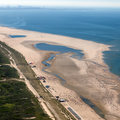
Pumping huge volumes of sand onto the coastline has effects on currents, waves and swim safety. Max Radermacher has compiled the first analysis of this problem to allow targeted measures (such as extra coastguards) to be taken where necessary. Radermacher will be awarded a PhD at TU Delft for his work on this subject on Friday 15 June.
10 June 2018
MIT students visit The Netherlands
A group of MIT professors and students visited The Netherlands last February, and were introduced to Dutch flood risk reduction structures and strategies by Tjerk Zitman and Baukje Kothuis during a week of field trips.
07 June 2018
4TU Resilience Engineering Centre officially launched
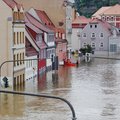
Large power failures or heavy storms demonstrate how vulnerable our infrastructure is. The four technical universities in the Netherlands (Delft University of Technology, Eindhoven University of Technology, University of Twente, and Wageningen University and Research) are joining forces in the field of Resilience Engineering. On 7 June, the plans for the centre have been explained during an international launch event in Rotterdam.
31 May 2018
No increase in losses in Europe from floods in the past 150 years
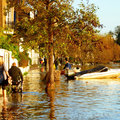
Extreme hydrological events are generally predicted to become more frequent and damaging in Europe due to warming climate. Researchers from TU Delft and Rice University (Houston) have now shown that, correcting for economic and demographic changes, there has been no increase in financial losses and fatalities from floods in the last 150 years. They have reported on their findings in Nature Communications.
27 May 2018
Flood risk workshop in Tirana, Albania

Albania is regularly struck by riverine floods, like on 2nd and 3rd December 2017. A workshop was organised from 26 to 30 April 2018 for students to explore integrated strategies of flood risk reduction in the built-on environment of Tirana (the capital of Albania). The workshop was jointly initiated by TU Delft, Faculty of Architecture and people involved in the Brigaid programme.
08 May 2018
‘Where there's a will, something goes away’
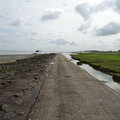
The Netherlands needs to opt for a coastal system that is as adaptive as possible, taking maximum advantage of the coast’s natural resilience and its ability to organise itself. This is according to ecologist, Prof. Peter Herman, who will give his inaugural address at TU Delft on Wednesday, 9 May.
27 April 2018
Publication Nature Scientific Reports: Beaches worldwide are growing

We love holidays on the beach and about a quarter of the world's population live on coasts because of the favourable economic location. But until now we have had only a very vague picture of how coastal areas have evolved worldwide over the years. Scientists in Delft are changing this. Researchers from Deltares, Delft University of Technology and IHE have analysed changes in 50,000 beaches over a 35-year period. They present their findings today in Nature Scientific Reports.
26 April 2018
Professor Mark van Koningsveld holder of Ports & Waterways chair

Prof.dr.ir. Mark van Koningsveld has been installed as the new holder of the chair of Ports & Waterways. Van Koningsveld is taking over from prof. Ir. Tiedo Vellinga and will continue the chair’s main brief which is to conduct research into the areas of port infrastructure and design and nautical matters.
23 April 2018
Voor het eerst opgemeten: stilte ín de storm
Lukt het om voor het eerst een oceaanwervel door te meten? Voorzichtig druppelen de eerste data binnen. Het lijkt binnen de wervel een stuk minder turbulent dan verwacht.
19 April 2018
Hurricane Harvey: Dutch-Texan research shows most fatalities occurred outside flood zones
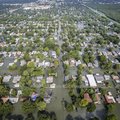
A Dutch-Texan team found that most Houston-area drowning deaths from Hurricane Harvey occurred outside the zones designated by government as being at higher risk of flooding: the 100- and 500-year floodplains. Harvey, one of the costliest storms in US history, hit southeast Texas on 25 August 2017 causing unprecedented flooding and killing dozens. Researchers at Delft University of Technology in the Netherlands and Rice University in Texas published their results today in the European Geosciences Union journal Natural Hazards and Earth System Sciences.